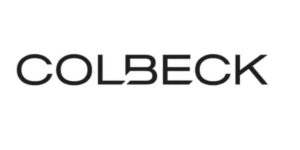Jason Colodne, a Managing Partner at Colbeck Capital Management, described an independent sponsor as a group or individual with insufficient capital to acquire a company or fund a transaction. Most independent sponsors are operators with extensive industry experience or former employees of private equity firms.
Colodne stated that both types of independent sponsors offer a unique skill set and can achieve success. The most successful independent sponsors are extremely proficient with business operations and have strong financial skills. This makes it possible for independent sponsors to succeed at raising capital and managing a growing business.
Growth of the Independent Sponsor Model
The independent sponsor model became more prominent after the last financial crisis in 2007-2008 in response to the following factors:
- Concentration of funds raised
- Decreased willingness of private equity funds to handle complex situations
- Expansion of private debt funds
- Investment strategy mergers with larger private equity funds
A decent market exists for independent sponsors if they do not focus exclusively on offering service for smaller opportunities and avoid complex financial situations. By following these guidelines, independent sponsors can actively engage in buy-out opportunities that were previously too difficult to execute. Common examples include carve-outs, divestitures, non-traditional businesses, and roll-ups.
Financing Options for Independent Sponsors
Financing options for independent sponsors typically fall into one of the three categories: private equity, seller financing, and strategic debt.
Private equity (PE) solutions refer to financing acquired from a traditional private equity fund. Operators of PE funds generally view independent sponsors as an extension of their original team. Independent sponsors typically receive compensation via equity upside after they have cleared all challenges associated with the transactions.
The downside to PE solutions for independent sponsors is that they have less control and equity along with a reduced fee for management income. At the same time, the PE fund can invest funds into the company in question. From a profitability standpoint, private equity is less desirable than exercising a strategic debt option. However, PE solutions do provide independent sponsors with the following benefits:
- Improved access to capital when the purchase price is not possible with a strategic debt solution
- Improved interest alignment
- Traditional PE support from sourcing more merger and acquisition opportunities
Seller financing refers to the consideration of a deferred purchase price. Typically structured as a subordinated note that does not bear interest, seller financing can payout as a business sale, refinancing deal, or structured payments. When seller financing is available, independent sponsors can benefit from the reduced cost and lack of upfront cash considerations necessary to acquire a platform. Seller financing also provides assurance of a smooth transfer of the asset between its former owner and the independent sponsor.
In contrast, private debt lenders typically offer strategic debt when the independent sponsor locates a debt solution that involves a higher-than-normal capital cost. In exchange, the independent sponsor receives less dilution of equity, greater overall control, and ongoing access to salaried income and management fees while operating the acquired business.
Combined Financing Options Are Usually the Best Solution
Most transactions benefit from a combination of seller financing and strategic debt solutions. Seller financing is popular because both the independent sponsor and the financing partners benefit from it. Rolling considerations offer the seller a financial incentive to provide the independent sponsor with a smooth transaction. This consideration also leaves an important enterprise value cushion.
Highly skilled independent sponsors usually try to maximize the seller financing aspect of a transaction to reduce the need for third-party financing and strategic debt. When the independent sponsor cannot access significant seller financing or refuses to pay a higher price, financing typically shifts to a private equity solution.
About Colbeck Capital Management
Jason Colodne and Jason Beckman founded Colbeck Capital in 2009. With offices in Los Angeles and New York, Colbeck offers strategic loan options to companies in transition that do not have traditional capital sources available to them.
About Jason Colodne
Jason Colodne has more than 20 years of investing experience. He previously worked for Goldman Sachs as the head of the Hybrid Lending Group and Proprietary Distressed Investing for the Fixed Income Currencies and Commodities Division. He has also worked in distressed investing at UBS and as an Investment Banker at Bear Stearns as well as the head of the Strategic Finance Division and managing director at Morgan Stanley.
Colodne has held board positions with several portfolio companies and participated in steering committees focused on restructuring. A graduate of the University of Pennsylvania, he is a board member with the Centurion Foundation and a member of the Young Professionals Organization of Metro New York. Colodne has supported the Children’s Tumor Foundation for several years and assisted with the charitable organization’s fundraising efforts.








